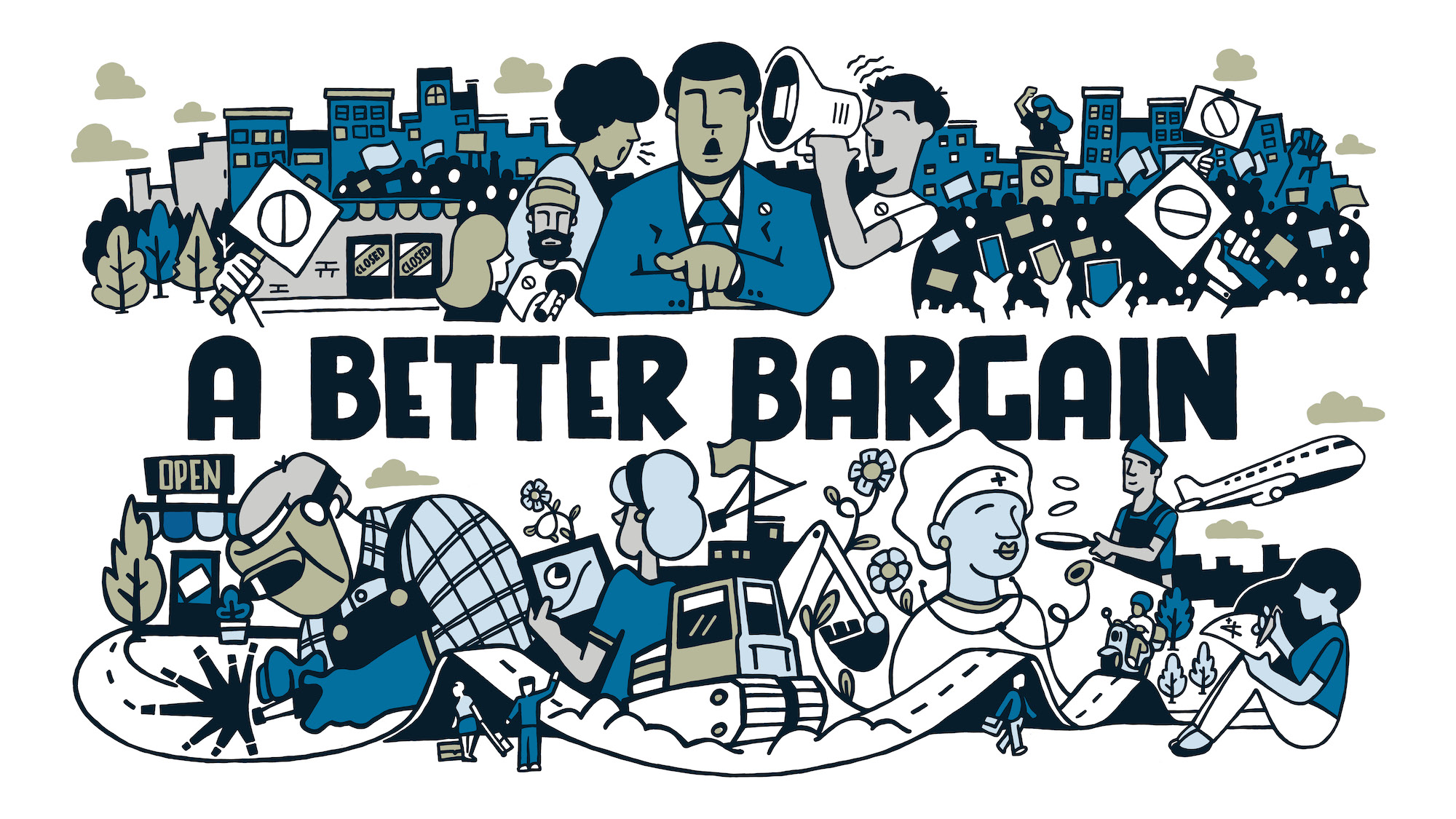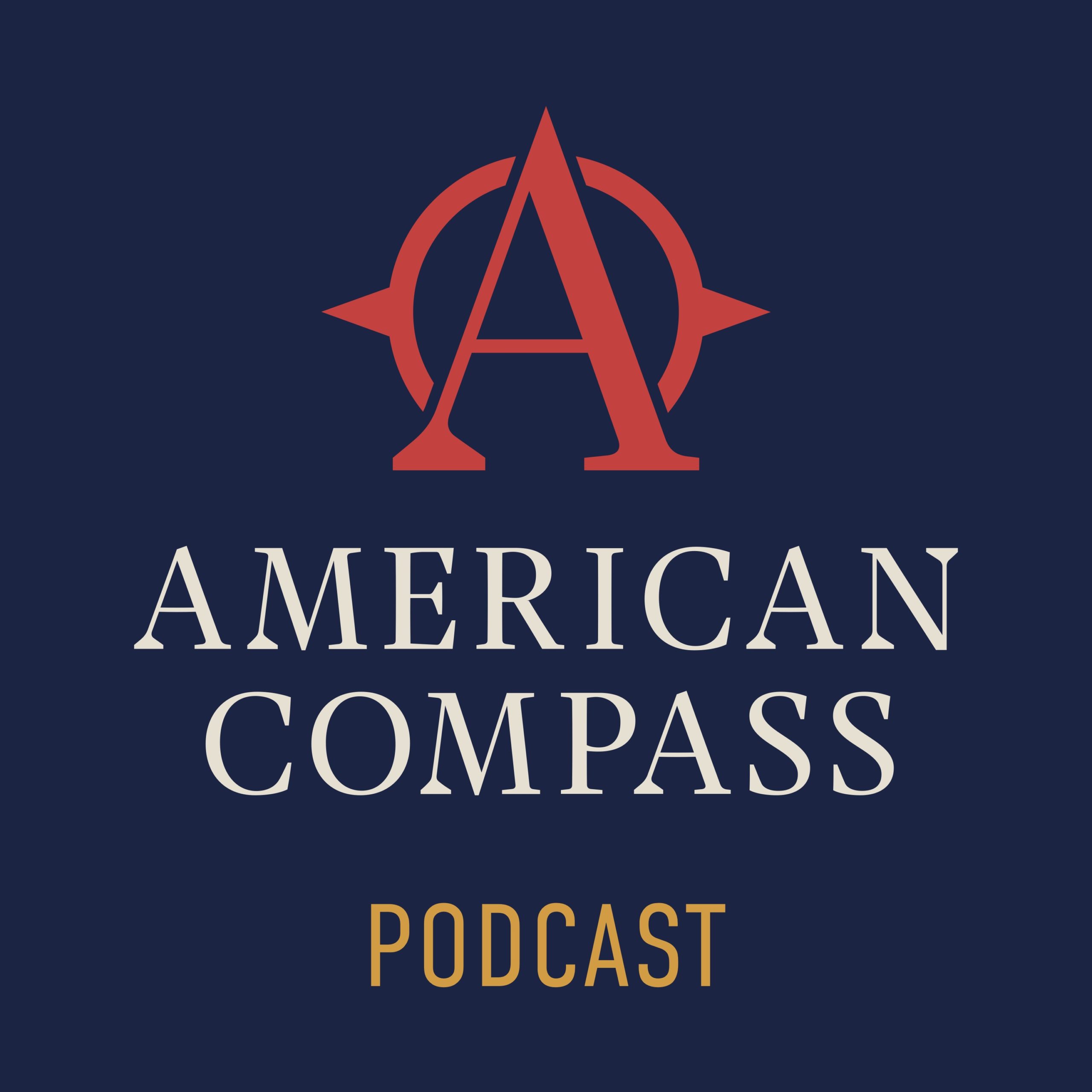

What’s the Problem?
American workers highly value having a voice in the workplace and collaborating with employers to address workplace issues.
Workers face a representation gap, with much less input on workplace issues than they want.
Most workers are ambivalent about traditional unions and work in nonunion settings, but alternative forms of representation are illegal under current law.
A Voice at Work
American workers place enormous value on cooperative relationships with management. Poor labor-management relations harm job satisfaction even more than unpredictable scheduling or low wages. Worker voice can benefit businesses too, through increased productivity and job satisfaction, improved information flow, and strengthened trust.
But only 35% of workers not already in a union say they would vote for one—roughly equal to the 34% who are undecided and 31% who say they would vote no. By 63% to 37% they say they would prefer a worker organization jointly run by workers and management to one run by workers alone. Employers, for their part, are twice as likely to say workers should have more input at work than to say they should have less.
Despite worker interest in forums for worker-management cooperation outside of unions, federal law forbids them. Workers can have a traditional workplace union—or nothing. This rule is intended to prevent employer-controlled “company unions” that subvert workers’ interests while claiming to represent them, but in the process, it precludes the approaches that workers want most.
What’s the Solution?
Congress should amend National Labor Relations Act (NLRA) section 8(a)(2), permitting the creation of formal, nonunion worker-management cooperative organizations. Such organizations would not collectively bargain but serve as forums to promote cooperation between labor and management whether a workplace was unionized or not.
Several qualifications should apply to permissible organizations:
- They should be created and dissolved at the workforce’s discretion, not unilaterally by employers
- Majority workforce consent should be obtained in a fair, unimpeded election, with both union and nonunion employees permitted to participate
- Worker representatives should be chosen by workers alone, without interference
- Worker-management organizations should be allowed to elect at least one representative to the employer’s board of directors
Better Conversations, Better Outcomes
Cooperative worker-management
organizations provide a way for workers and management to address concerns, negotiate workplace improvements, and strengthen trust. When workers and management can engage in that spirit, both the workers and the business are more likely to thrive.
Frequently Raised Objections
“This just empowers Big Labor.”
Big Labor and many of its progressive allies are staunchly opposed to any form of nonunion worker organization. American workers want alternatives to the current outdated union system, and this would provide it.
“This will hinder productivity and innovation.”
Several European countries use non-adversarial “works councils,” similar to the organizations advocated in this brief. Works councils have been shown to increase long-term productivity, enhance worker job satisfaction, improve the flow of useful information between workers and management, and create workplace trust—all to the benefit of the business concerned.
“These new organizations would just be employer-dominated company unions.”
An organization can hardly be employer-dominated if workers must support its formation and have the unilateral power to dissolve it. Providing workers a seat on the corporate board further expands their voice and representation within the company, beyond what a traditional union offers.
Further Reading
- Wells King. “Workers of the World.” American Compass, 2020. A conservative’s guide to understanding the role of organized labor in civil society, strong labor markets, and workplace governance.
- “Not What They Bargained For: A Survey of American Workers.” American Compass, 2021. A survey of American workers attitudes about organized labor, voice in the workplace, and policy reform.
- Chris Griswold. “A Better Bargain: Worker Voice and Representation.” American Compass, 2021. A proposal for improving worker-management relations in the workplace and the boardroom.
- “Workers in the Boardroom.” American Compass, 2023. A policy brief advocating for worker seats on corporate boards.
- Chris Griswold. “The Right Is Starting to Represent Workers Outside of Unions.” Newsweek, 2022. An overview of the TEAM Act of 2022.
- “Teamwork for Employees and Managers (TEAM) Act of 2022.” Sen. Marco Rubio (R-FL) and Rep. Jim Banks (R-IN). A proposal to legalize worker-employee cooperative organizations and allow such organizations to elect board representatives.
Recommended Reading
Policy Brief: Workers in the Boardroom
Give workers a seat at the directors’ table
A Better Bargain: Worker Voice and Representation
This paper proposes two complementary policies that together offer a genuinely better bargain for American workers: formal recognition of “works councils” and a mechanism by which workers could elect representation to their corporation’s board.
Talkin’ (Policy) Shop: Worker Voice
On this episode, Oren and Chris discuss the issue of worker voice and how to reform labor law to create new avenues for labor input from the shop floor to the boardroom.












